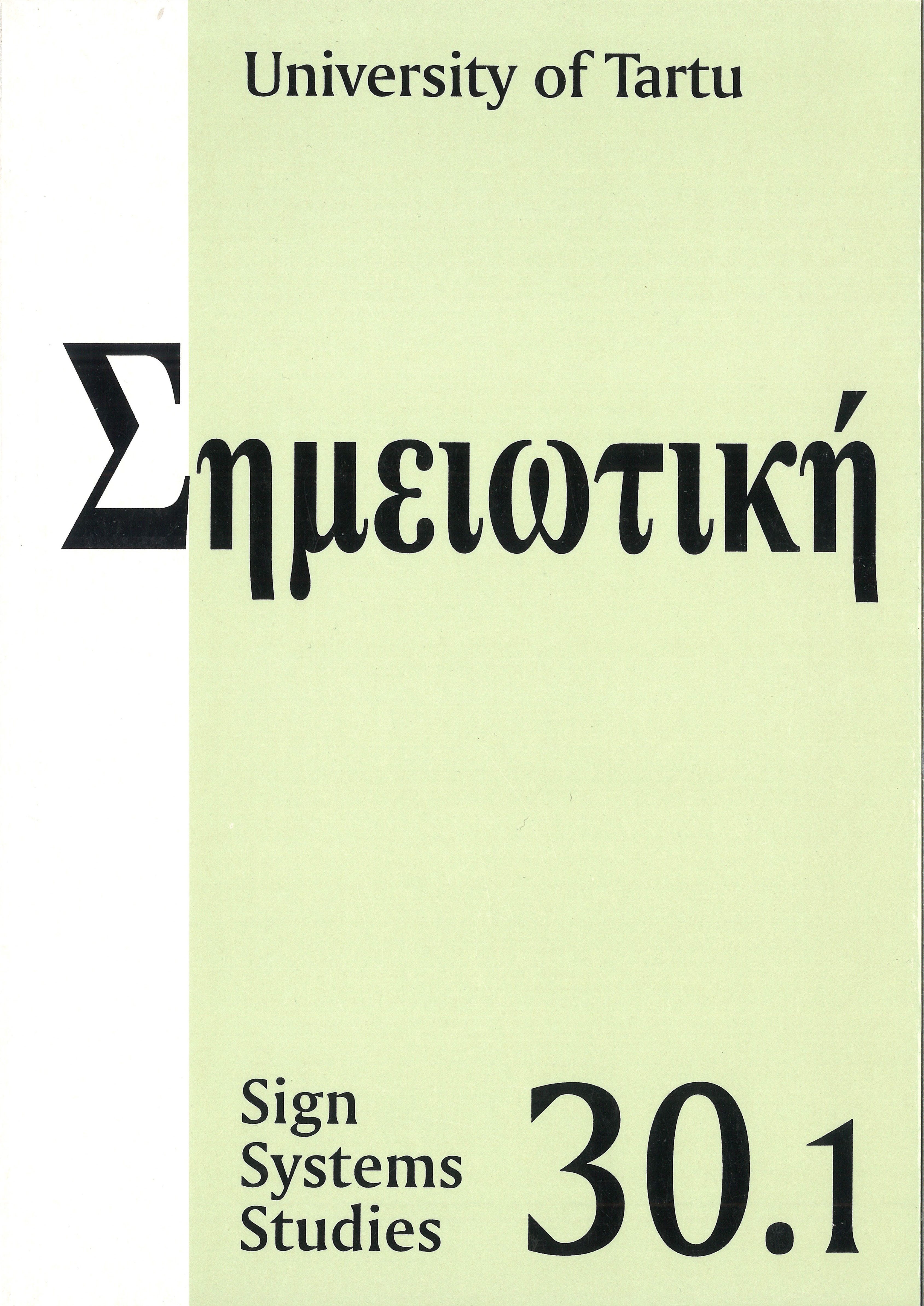Three types of semiotic indeterminacy in Monod’s philosophy of modern biology
DOI:
https://doi.org/10.12697/SSS.2002.30.1.09Abstract
Synthesizing important research traditions in information theory, structuralist semiotics, and generative linguistics, at least three main types of semiotic indeterminacy must be distinguished: Kolmogorov’s notion of randomness defined as sequential incompressibility, de Saussure’s principle of contingency of sign which ensures the possibility of translation between different sign systems, and Chomsky’s idea of indefiniteness in generative mechanisms as a requirement for the explanation of semiotic creativity. These types of semiotic indeterminacy form an abstract system useful for the description of concrete sign processes in their syntactic, semantic, and pragmatic dimension. In his philosophical reflections on modern biology, Jacques Monod used the conceptual opposition chance versus necessity to analyse several phenomena of indeterminacy (especially in molecular biology). The biosemiotic approach to life permits to apply the suggested system of semiotic indeterminacy on these phenomena.


